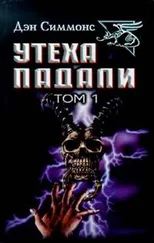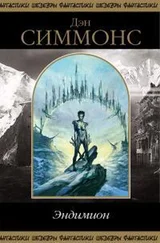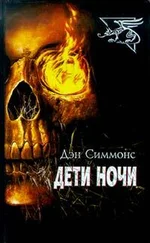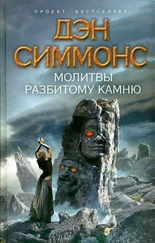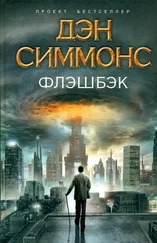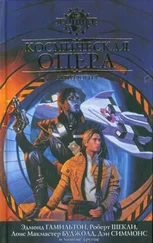Дэн Симмонс - The Rise of Endymion
Здесь есть возможность читать онлайн «Дэн Симмонс - The Rise of Endymion» весь текст электронной книги совершенно бесплатно (целиком полную версию без сокращений). В некоторых случаях можно слушать аудио, скачать через торрент в формате fb2 и присутствует краткое содержание. Жанр: Эпическая фантастика, Космическая фантастика, на английском языке. Описание произведения, (предисловие) а так же отзывы посетителей доступны на портале библиотеки ЛибКат.
- Название:The Rise of Endymion
- Автор:
- Жанр:
- Год:неизвестен
- ISBN:нет данных
- Рейтинг книги:5 / 5. Голосов: 1
-
Избранное:Добавить в избранное
- Отзывы:
-
Ваша оценка:
- 100
- 1
- 2
- 3
- 4
- 5
The Rise of Endymion: краткое содержание, описание и аннотация
Предлагаем к чтению аннотацию, описание, краткое содержание или предисловие (зависит от того, что написал сам автор книги «The Rise of Endymion»). Если вы не нашли необходимую информацию о книге — напишите в комментариях, мы постараемся отыскать её.
The Rise of Endymion — читать онлайн бесплатно полную книгу (весь текст) целиком
Ниже представлен текст книги, разбитый по страницам. Система сохранения места последней прочитанной страницы, позволяет с удобством читать онлайн бесплатно книгу «The Rise of Endymion», без необходимости каждый раз заново искать на чём Вы остановились. Поставьте закладку, и сможете в любой момент перейти на страницу, на которой закончили чтение.
Интервал:
Закладка:
In each of the stalls, a cardinal jotted the name on a ’scriber pad provided by the Scrutineers. At the end of the Conclave, the ’scribers would be scrambled, their files deleted so that no record of the voting would remain.
And so the voting proceeded. For Lourdusamy as for the rest of the living cardinals present, the only suspense was whether the dissident cardinal-electors from the Acclamation would actually put someone else’s name into play.
As each card was read, the last Scrutineer ran a threaded needle through the word “Eligo” and slid the card down the thread. When all of the ballots had been read aloud, knots were tied in each end of the thread. The winning candidate was admitted to the Chapel.
Standing before the altar in a simple black cassock, the man looked humble and a bit overwhelmed. Standing before him, the senior Deacon Cardinal said, “Do you accept your canonical election as Supreme Pontiff?”
“I do so accept it,” said the priest.
At this point, a stall was brought out and set behind the priest. The Cardinal Deacon raised his hands and intoned, “Thus accepting your canonical election, this gathering does—in the sight of God Almighty—acknowledge you as Bishop of the Church of Rome, true Pope, and Head of the College of Bishops. May God advise you well as He grants you full and absolute power over the Church of Jesus Christ.”
“Amen,” said Cardinal Lourdusamy and pulled the cord that lowered the canopy over his stall. All eighty-three physical canopies and thirty-seven holographic ones lowered at the same time, until only the new Pope’s remained raised. The priest—now pontiff—sat back in the seat beneath the papal canopy. “What name do you choose as Supreme Pontiff?” asked the Deacon Cardinal.
“I choose the name Urban the Sixteenth,” said the seated priest.
There was a murmuring and hum from the cardinals’ stalls. The Cardinal Deacon held out his hand and he and the other Scrutineers led the priest from the Chapel. The murmuring and whispering rose in volume.
Cardinal Mustafa leaned out of his stall and said to Lourdusamy, “He must be thinking of Urban the Second. Urban the Fifteenth was a sniveling little coward in the twenty-ninth century who did little but read detective novels and write love letters to his former mistress.”
“Urban the Second,” mused Lourdusamy. “Yes, of course.”
After several minutes, the Scrutineers returned with the priest—now the Pope dressed in pure white—a white-caped cassock, a white zuchetto or skullcap, a pectoral cross, and a white fascia sash. Cardinal Lourdusamy went to his knees on the stone floor of the Chapel, as did all the other cardinals real and holographic, as the new Pontiff gave his first benediction.
Then the Scrutineers and the attending cardinals went to the stove to burn the votes now tethered on black thread, adding enough bianco chemical to make sure that the fumata would indeed be white smoke.
The cardinals filed out of the Sistine Chapel and walked the ancient paths and corridors to St. Peter’s, where the senior Cardinal Deacon went alone onto the balcony to announce the name of the new Pontiff to the waiting multitudes.
Among the five hundred thousand waiting individuals in the multitude squeezed into, out of, and around St. Peter’s Square that morning was Father Captain Federico de Soya. He had been released from his de facto imprisonment at the Legionaries rectory only hours before.
He was to report to Pax Fleet’s spaceport later that afternoon for shuttle to his new command.
Walking through the Vatican, de Soya had followed the crowds—then had been engulfed by them—as men, women, and children had flowed like a great river toward the Square.
A great cheer had gone up when the puffs of white smoke first became visible from the stovepipe. The impossibly thick throng beneath the balcony of St. Peter’s somehow became thicker as tens of thousands more flowed around the colonnades and past the statuary. Hundreds of Swiss Guard troopers held the crowd back from the entrance to the Basilica and away from private areas.
When the Senior Deacon emerged and announced that the new Pope was to be called His Holiness Urban the XVI, a great gasp went up from the crowd. De Soya found himself gaping in surprise and shock. Everyone had expected Julius XV. The thought of anyone else as Pope was… well, unthinkable.
Then the new Pontiff stepped onto the balcony and the gasps turned to cheers that went on and on and on.
It was Pope Julius—the familiar face, the high forehead, the sad eyes. Father Lenar Hoyt, the savior of the Church, had once again been elected. His Holiness raised his hand in the familiar benediction and waited for the crowd to stop cheering so that he could speak, but the crowd would not stop cheering. The roar rose from half a million throats and went on and on.
Why Urban XVI? wondered Father Captain de Soya. He had read and studied enough history of the Church in his years as a Jesuit. Quickly he thumbed back through his mental notes on the Urban popes… most were forgettable or worse. Why…
“Damn,” Father Captain de Soya said aloud, the soft curse lost under the continuing roar of the faithful filling St. Peter’s Square.
“Damn,” he said again.
Even before the crowd quieted enough for the new-old Pontiff to speak, to explain his choice of names, to announce what de Soya knew had to be announced, the father-captain understood. And his heart sank with that understanding.
Urban II had served from A.D. 1088 to 1099. At the synod the Pope had called in Clermont in… November, in the year 1095, de Soya thought… Urban II had made his call for holy war against the Muslims in the Near East, for the rescue of Byzantium, and for the liberation of all eastern Christian holy places from Muslim domination. That call had led to the First Crusade… the first of many bloody campaigns.
The crowd finally quieted. Pope Urban XVI began to speak, the familiar but newly energized voice rising and falling over the heads of the half-million faithful listening in person and the billions listening via live broadcast.
Father Captain de Soya turned away even before the new Pope began to speak. He pushed and elbowed his way back through the unmoving crowd, trying to escape the suddenly claustrophobic confines of St. Peter’s Square.
It was no use. The crowd was rapt and joyous and de Soya was trapped in the mob. The words from the new Pontiff were also joyous and impassioned.
Father Captain de Soya stood, unable to escape, and bowed his head. As the crowd began cheering and crying “Deus le volt!”—God wills it—de Soya began to weep.
Crusade. Glory. A final resolution of the Ouster Problem. Death beyond imagining.
Destruction beyond imagining. Father Captain de Soya squeezed his eyes shut as tightly as he could, but the vision of charged particle beams flaring against the blackness of space, of entire worlds burning, of oceans turning to steam and continents into molten rivers of lava, visions of orbital forests exploding into smoke, of charred bodies tumbling in zero-g, of fragile, winged creatures flaring and charring and expanding into ash…
De Soya wept while billions cheered.
4
It has been my experience that late-night departures and farewells are the hardest on the spirit.
The military was especially good at beginning major voyages in the middle of the night. During my time in the Hyperion Home Guard, it seemed that all important troop movements began in the wee hours. I began to associate that odd blend of fear and excitement, dread and anticipation, with predawn darkness and the smell of lateness. Aenea had said that I would be leaving that night of her announcement to the Fellowship, but it took time to load the kayak, for me to pack my gear and decide what to leave behind forever, and to close up my tent and work area in the compound, so we weren’t airborne in the dropship until after two A.M. and it was almost sunrise before we reached our destination.
Читать дальшеИнтервал:
Закладка:
Похожие книги на «The Rise of Endymion»
Представляем Вашему вниманию похожие книги на «The Rise of Endymion» списком для выбора. Мы отобрали схожую по названию и смыслу литературу в надежде предоставить читателям больше вариантов отыскать новые, интересные, ещё непрочитанные произведения.
Обсуждение, отзывы о книге «The Rise of Endymion» и просто собственные мнения читателей. Оставьте ваши комментарии, напишите, что Вы думаете о произведении, его смысле или главных героях. Укажите что конкретно понравилось, а что нет, и почему Вы так считаете.

